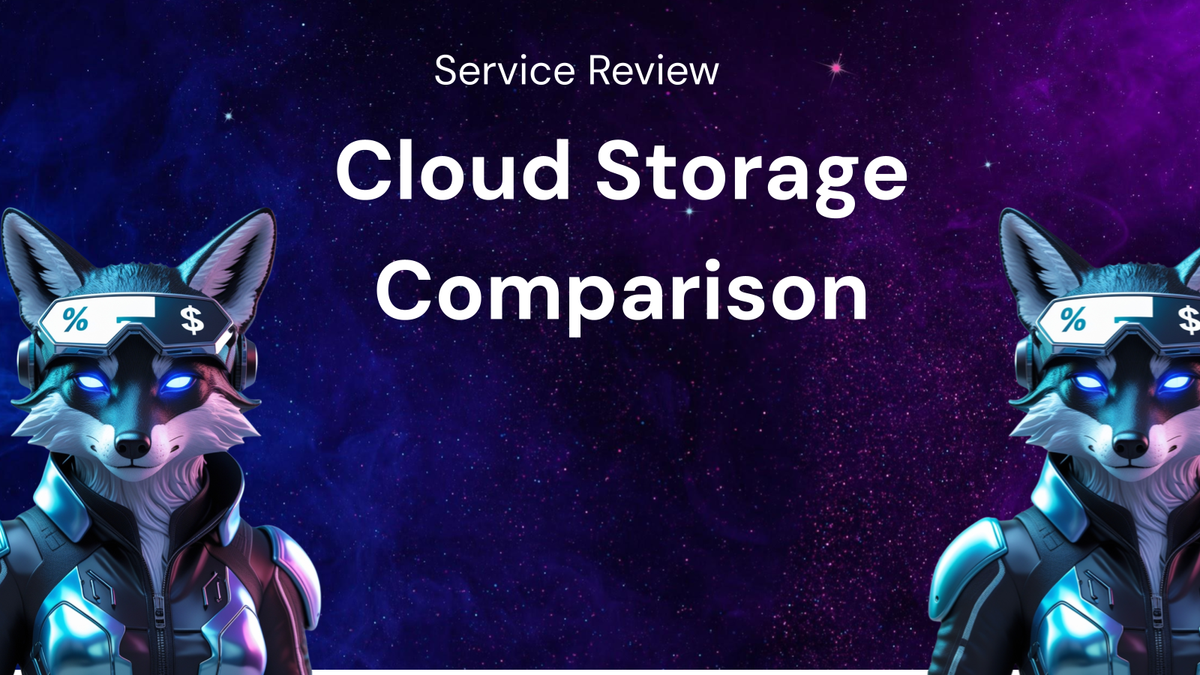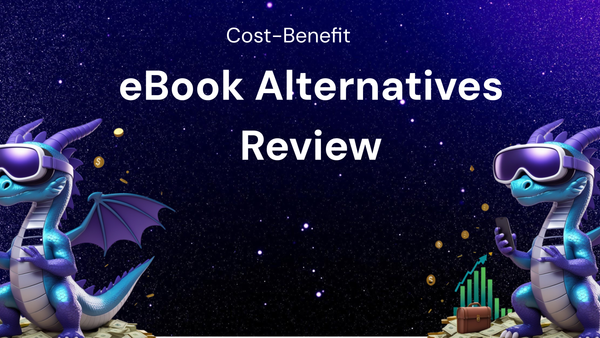Cloud Storage Comparison Review: Which Service is Right for You?

Cloud Storage Comparison Review: Which Service is Right for You?
In today's digital age, cloud storage has become an indispensable tool for individuals and businesses alike. From safeguarding precious memories to enabling seamless collaboration, cloud storage services offer a convenient, accessible, and reliable way to manage data. However, with a plethora of options available, choosing the right cloud storage service can feel overwhelming. This comprehensive review will delve into the most popular cloud storage providers, comparing their features, pricing, security, and usability to help you determine which service best suits your specific needs.
Why Cloud Storage? Understanding the Benefits
Before diving into specific services, let's briefly recap the key benefits of utilizing cloud storage:
- Accessibility: Access your files from anywhere in the world with an internet connection. No more reliance on USB drives or physical hard drives.
- Data Security: Reputable cloud providers employ robust security measures, including encryption and redundancy, to protect your data from loss, theft, or damage.
- Collaboration: Easily share files and folders with others, enabling seamless collaboration on projects and documents.
- Scalability: Cloud storage allows you to scale your storage space as your needs grow, without the need for expensive hardware upgrades.
- Backup and Recovery: Cloud storage services often provide automatic backup and recovery features, ensuring that your data is protected in case of hardware failure or other unforeseen events.
- Cost-Effectiveness: Cloud storage can be a cost-effective alternative to purchasing and maintaining physical storage infrastructure, especially for businesses.
Key Considerations When Choosing a Cloud Storage Service
Before comparing specific services, it's crucial to identify your individual or business requirements. Consider the following factors:
- Storage Capacity: How much storage space do you need? Estimate the amount of data you currently have and factor in future growth.
- Pricing: Compare the pricing plans of different providers and consider your budget. Look for value for money based on the features offered.
- Security: Ensure the provider offers robust security measures, including encryption, two-factor authentication, and data redundancy.
- Ease of Use: The service should be user-friendly and intuitive, with a seamless interface for uploading, downloading, and managing files.
- Collaboration Features: If you need to collaborate with others, look for features like file sharing, version control, and real-time co-editing.
- Integration: Check if the service integrates with the apps and devices you already use, such as your operating system, productivity software, and mobile devices.
- Syncing Capabilities: How reliably and quickly does the service sync files across your devices? Consider the importance of real-time syncing.
- File Size Limits: Some services have restrictions on the maximum file size you can upload. Be aware of these limits if you work with large files.
- Customer Support: A responsive and helpful customer support team is crucial in case you encounter any issues.
- Privacy Policy: Understand how the provider handles your data and ensure their privacy policy aligns with your values.
- Mobile Apps: Do they offer mobile apps for iOS and Android, and how feature-rich are those apps?
- Desktop Apps: Do they offer desktop apps for Windows and Mac?
The Contenders: A Cloud Storage Comparison
Now, let's examine some of the leading cloud storage providers, comparing their features, pricing, and overall value:
1. Google Drive
- Overview: Google Drive is seamlessly integrated with the Google ecosystem, making it a popular choice for users who rely on Google Docs, Sheets, and Slides.
- Features:
- Real-time collaboration on documents, spreadsheets, and presentations.
- Automatic syncing across devices.
- AI-powered search capabilities.
- Integration with Google Photos for photo and video storage.
- Version history for tracking changes to files.
- File sharing with granular permission controls.
- Pricing:
- 15 GB of free storage shared across Google Drive, Gmail, and Google Photos.
- Google One plans offer increased storage:
- 100 GB: $1.99/month or $19.99/year
- 200 GB: $2.99/month or $29.99/year
- 2 TB: $9.99/month or $99.99/year
- Pros:
- Excellent integration with Google's ecosystem.
- User-friendly interface.
- Powerful collaboration features.
- Affordable pricing.
- Cons:
- Privacy concerns due to Google's data collection practices.
- Limited storage in the free tier.
- Best For: Individuals and businesses who heavily use Google's productivity tools.
2. Microsoft OneDrive
- Overview: OneDrive is Microsoft's cloud storage service, tightly integrated with Windows and Microsoft Office applications.
- Features:
- Seamless integration with Word, Excel, PowerPoint, and other Office apps.
- Automatic syncing across devices.
- Version history for tracking changes to files.
- File sharing with permission controls.
- Personal Vault for storing sensitive documents with enhanced security.
- Offline access to files.
- Pricing:
- 5 GB of free storage.
- 100 GB: $1.99/month
- Microsoft 365 Personal: $6.99/month or $69.99/year (includes 1 TB of storage and access to Office apps)
- Microsoft 365 Family: $9.99/month or $99.99/year (includes 6 TB of storage, 1 TB per person, and access to Office apps for up to 6 people)
- Pros:
- Excellent integration with Microsoft Office.
- User-friendly interface, especially for Windows users.
- Generous storage with Microsoft 365 subscriptions.
- Personal Vault for enhanced security.
- Cons:
- Limited storage in the free tier.
- Can be expensive if you don't need Microsoft Office.
- Best For: Individuals and businesses who heavily use Microsoft Office applications.
3. Dropbox
- Overview: Dropbox is a well-established cloud storage service known for its simplicity and reliability.
- Features:
- Automatic syncing across devices.
- File sharing with permission controls.
- Version history for tracking changes to files.
- Dropbox Paper for collaborative document creation.
- Smart Sync for accessing files without taking up local storage space.
- Dropbox Rewind for restoring previous versions of your entire account.
- Pricing:
- 2 GB of free storage.
- Dropbox Plus: $11.99/month or $119.88/year (2 TB of storage)
- Dropbox Family: $19.99/month or $203.88/year (2 TB of storage for up to 6 users)
- Dropbox Professional: $19.99/month or $199/year (3 TB of storage)
- Pros:
- Simple and user-friendly interface.
- Reliable syncing.
- Cross-platform compatibility.
- Excellent version history and recovery features.
- Cons:
- Limited storage in the free tier.
- More expensive than some competitors for similar storage amounts.
- Fewer collaboration features compared to Google Drive and OneDrive.
- Best For: Individuals and small businesses who need a reliable and easy-to-use cloud storage service.
4. iCloud Drive
- Overview: iCloud Drive is Apple's cloud storage service, deeply integrated with macOS and iOS devices.
- Features:
- Automatic syncing across Apple devices.
- Integration with Apple's productivity apps (Pages, Numbers, Keynote).
- File sharing with permission controls.
- iCloud Keychain for storing passwords and credit card information.
- Find My for locating lost Apple devices.
- Collaboration features within Apple's productivity apps.
- Pricing:
- 5 GB of free storage.
- 50 GB: $0.99/month
- 200 GB: $2.99/month
- 2 TB: $9.99/month
- Pros:
- Seamless integration with Apple devices and services.
- User-friendly interface for Apple users.
- Affordable pricing for additional storage.
- Integration with Apple's security features.
- Cons:
- Limited functionality on non-Apple platforms.
- Smaller free storage tier compared to some competitors.
- Less robust collaboration features compared to Google Drive and OneDrive.
- Best For: Users who are heavily invested in the Apple ecosystem.
5. Box
- Overview: Box is a cloud storage and content management platform primarily focused on business users, emphasizing security and collaboration.
- Features:
- Robust security features, including encryption and compliance certifications.
- Granular permission controls for file sharing.
- Version history and file locking.
- Collaboration features, including commenting and task management.
- Integration with various business applications.
- Workflow automation.
- Pricing:
- 10 GB of free storage (single user, 250 MB file upload limit).
- Business Starter: $7/user/month (3 users minimum, 100 GB storage)
- Business: $20/user/month (unlimited storage)
- Business Plus: $33/user/month (advanced features)
- Pros:
- Excellent security and compliance features.
- Robust collaboration tools.
- Strong integration with business applications.
- Suitable for large organizations with complex security requirements.
- Cons:
- More expensive than other options, especially for small businesses.
- Can be complex to set up and manage.
- Free plan is very limited.
- Best For: Businesses with strict security and compliance requirements.
6. pCloud
- Overview: pCloud is a Swiss-based cloud storage service known for its focus on privacy and security.
- Features:
- Client-side encryption for enhanced data privacy.
- Zero-knowledge privacy, meaning pCloud doesn't have access to your encryption key.
- Automatic syncing across devices.
- File sharing with permission controls.
- Version history for tracking changes to files.
- Built-in audio and video players.
- Lifetime plans available.
- Pricing:
- 10 GB of free storage.
- Premium 500 GB: $4.99/month or $49.99/year, or a one-time payment of $175
- Premium Plus 2 TB: $9.99/month or $99.99/year, or a one-time payment of $350
- Custom plan options available for larger storage needs.
- Pros:
- Excellent privacy and security features.
- User-friendly interface.
- Lifetime plans offer a long-term cost advantage.
- Based in Switzerland, known for its strong data protection laws.
- Cons:
- Slightly less well-known than some of the bigger players.
- Fewer integrations with other services compared to Google Drive or OneDrive.
- Best For: Individuals and businesses who prioritize privacy and security.
7. Mega
- Overview: Mega is another cloud storage service with a strong emphasis on privacy and security, offering end-to-end encryption.
- Features:
- End-to-end encryption for all files.
- Automatic syncing across devices.
- File sharing with permission controls.
- Version history for tracking changes to files.
- Secure video conferencing.
- Generous free storage allowance.
- Pricing:
- 20 GB of free storage.
- Pro Lite (400 GB): $4.99/month or $49.99/year
- Pro I (2 TB): $9.99/month or $99.99/year
- Pro II (8 TB): $19.99/month or $199.99/year
- Pro III (16 TB): $29.99/month or $299.99/year
- Pros:
- Strong focus on privacy and security with end-to-end encryption.
- Generous free storage allowance.
- Affordable pricing for paid plans.
- Cons:
- Past controversies surrounding the company's founders.
- Less intuitive interface compared to some competitors.
- Can be challenging to recover your account if you lose your encryption key.
- Best For: Users who prioritize privacy and security and need a significant amount of free storage.
8. Sync.com
- Overview: Sync.com focuses on providing secure and private cloud storage with end-to-end encryption.
- Features:
- End-to-end encryption.
- HIPAA compliance.
- Secure file sharing with expiry dates and password protection.
- Version history.
- Remote wipe.
- Custom branding.
- Pricing:
- Free plan: 5 GB storage.
- Solo Basic: $8/month (2 TB)
- Solo Professional: $20/month (6 TB)
- Teams Standard: $6/user/month (1 TB/user)
- Teams Plus: $15/user/month (Unlimited)
- Pros:
- Excellent security and privacy.
- Affordable prices.
- Cons:
- User Interface is not as modern as competitors.
Choosing the Right Service: A Summary
To summarize, here's a quick guide to help you choose the best cloud storage service for your needs:
- For Google Ecosystem Users: Google Drive is the obvious choice, offering seamless integration with Google Docs, Sheets, and Slides.
- For Microsoft Office Users: OneDrive is the ideal option, providing tight integration with Word, Excel, PowerPoint, and other Office apps.
- For Simplicity and Reliability: Dropbox is a great choice for users who want a simple and reliable cloud storage service.
- For Apple Users: iCloud Drive is the best option for users who are heavily invested in the Apple ecosystem.
- For Businesses with Security Needs: Box is a strong contender, offering robust security and compliance features.
- For Privacy-Conscious Users: pCloud, Mega, and Sync.com are excellent choices, providing strong encryption and privacy features.
Beyond the Big Names: Other Cloud Storage Options
While the services listed above are the most popular, many other cloud storage providers are worth considering, including:
- Amazon S3: A highly scalable and cost-effective option for developers and businesses. (More technical to set up)
- Backblaze B2: A low-cost cloud storage service for backups and archiving.
- IDrive: Provides comprehensive backup solutions, including cloud storage and local backups.
- Internxt: Focused on privacy, utilizing blockchain technology.
Final Thoughts
Choosing the right cloud storage service is a personal decision that depends on your individual or business needs, budget, and priorities. Consider the factors discussed in this review, compare the features and pricing of different providers, and take advantage of free trials to test out the services before making a final decision. By carefully evaluating your options, you can find a cloud storage solution that provides the security, accessibility, and collaboration features you need to manage your data effectively.




